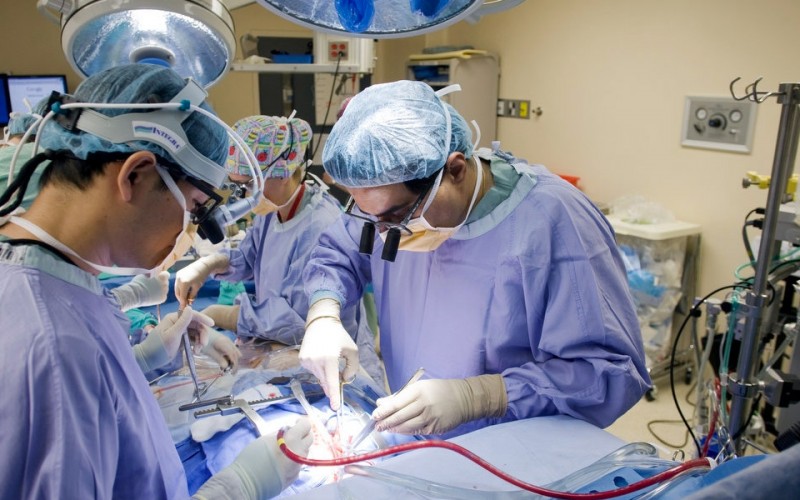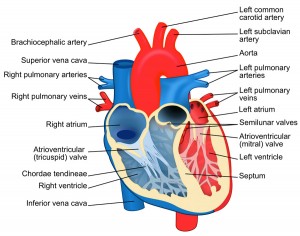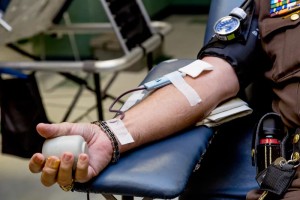Mitral valve is a part of your heart that regulates the blood flow, so when it is damaged, you experience symptoms such as palpitations, cold sweat, and heart murmurs. Called Mitral Valve Prolapse (MVP), this condition affects two to three percent of populations but normally does not require treatments. However, in severe cases, the doctor may recommend surgery to fix it.
The most drastic surgery measure to cure MVP involves mitral valve replacement. This procedure is not only expensive but also complicated and may bring some small side effects. The question is: how to tell whether you need this procedure or not?
Reasons to Have Mitral Valve Replacement Procedure

Why replace your mitral valve?
MVP is determined through a series of examinations, such as EEG, Echo, and X-ray. Your cardiologist will also review your medical history and other health risks that may be related, such as stroke or coronary heart disease. By combining all the factors, the doctor will determine whether you need to get treatments or not.
If there is an indication that your condition may trigger worse symptoms, your cardiologist will recommend surgery. Mitral valve replacement is usually the last option to recommend because it requires the surgeon to insert the artificial valve in your heart. However, it may be necessary to prevent future heart problems.
Mitral valve replacement is also necessary if your heart experiences severe mitral regurgitation, in which your blood is pumped backward in large amount. Your cardiologist will review your condition to determine the level of invasive treatments your body can handle. Some may require open-heart surgery, while others only need surgery with the most minimum invasive procedures.
Types and Risks of Mitral Valve Replacement
There are two types of mitral valve replacement procedure: valvuloplasty and annuloplasty. Valvuloplasty refers to a procedure for a thickened and fused valve flaps, which restrict the blood flow. Meanwhile, annuloplasty focuses on fixing the valve ring tissue, which can expand and not allow the valve flaps to work properly.
Regardless of the type, mitral valve replacement is not without risks. The common risks of this procedure are:
- Blood clots or bleeding
- Irregular heart rhythms
- Infection or inflammation
- Stroke
- Valve dysfunction, such as failure to adapt to the new heart
- Death
Some people may have higher risks than others when undergoing this surgery. Therefore, good preparation is important for the patient to get a satisfying result.
Important Questions to Ask before Mitral Valve Replacement

Always consult your cardiologist
Once the surgery date is set, your cardiologist will inform you about things to expect before, during, and after the procedure. The information includes potential risks, side effects, and restrictions you must undergo. It is better to have a family member, trusted friend, or caretaker beside you during the whole ordeal.
Your cardiologist will also inform you about preparation steps to take before undergoing surgery. Make sure you list all the important questions, such as:
The duration of the procedure
You are likely to stay in the hospital days before and after the surgery. Ask your cardiologist about the prediction of hospitalization period, and prepare your staying bag based on it. Don’t forget to plan the transportations to and from the hospital.
Foods and drinks to consume (and avoid)
Depending on your condition, certain foods or alcohol may become off-limits before and after surgery. Ask your cardiologist about specific foods or drinks to avoid, and what you should consume instead. Also, ask when you should start fasting before surgery.
Medications to take (and stop)
You may take regular medications before the surgery. Tell your cardiologist about all the medications you have taken, and what to continue or stop. Don’t forget to inform the doctors about all your allergies or side effects toward certain products or drugs.
Possibility to have mitral valve repair instead
When your cardiologist says that you need surgery, ask if mitral valve repair can be the solution instead of replacement. Mitral valve repair surgery is easier and has lesser risks, although it may not help you in the long term.
Changes in lifestyle
Your lifestyle can determine the outcome of the surgery, and when the procedure is over, lifestyle changes are necessary to keep your condition. Inform your doctor about the details in your lifestyle and ask about changes required to make after the procedure.
Post-surgery side effects
Different people may experience unique side effects after the surgery. Ask your cardiologist about what you may experience after the procedure is over. You can also ask about activities to reduce discomfort or pain you may feel.
You must remember to take off all jewelry or accessories that can hinder the surgery process, such as earrings, necklace, contact lenses, nail polishes, dentures, and eyeglasses. Shave your chest the night before surgery to make the procedure easier.
Conclusion
Mitral valve replacement is not the only solution for MVP, but it is the last resort for those with the most severe condition. Despite the complicated procedure and possible risks, this surgery is common. Regardless, you need to prepare well before the surgery and discuss with your doctor to get all the information you need.




Leave a Reply